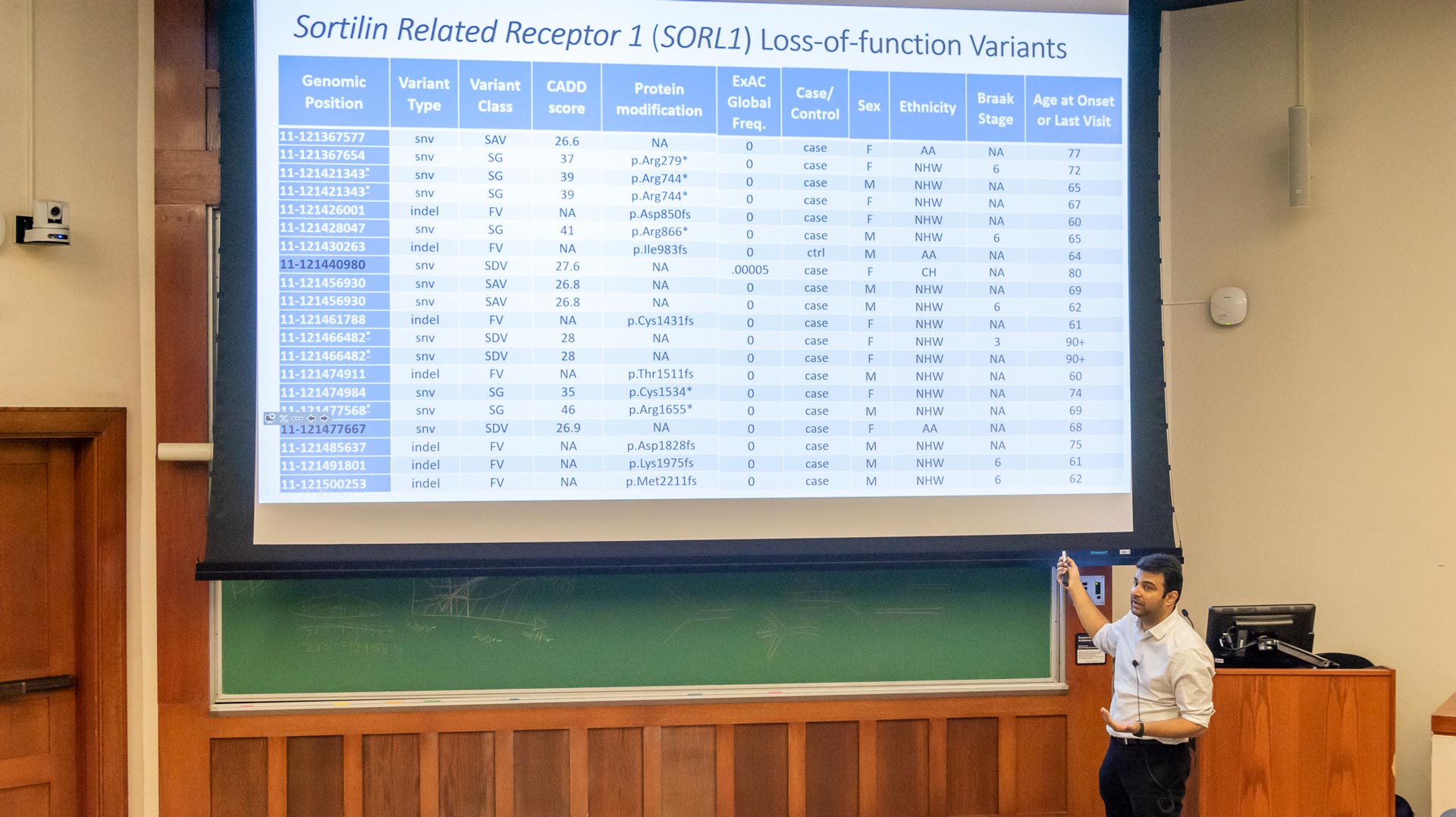
Penn Neurodegeneration Genomics Center (PNGC) had the exciting opportunity to host Dr. Badri Vardarajan last semester. Dr. Vardarajan gave a seminar style talk around some of the work he and his team are doing at Columbia, and we’ve recapped below.
Dr. Vardarajan has a background in computational biology and is an Assistant Professor of Bioinformatics in Neurology at Columbia University, as well as a faculty member of the Sergievsky Center. He plays an important role in leading various Alzheimer’s Disease Genetics Consortium (ADGC) projects. At Penn, he presented on a number of projects taking place at Columbia. One of the main focuses of his work has been on a project called “Next-generation sequencing in Caribbean Hispanic families for Late-Onset Alzheimer’s Disease” that has been ongoing for about two decades. Study samples include a community based study called Washington Heights/ Inwood Columbia Aging Project (WHICAP) and a familial study called Estudio Familiar de Influencia Genetica en Alzheimer (EFIGA). The study cohort was also extended to large families from the Dominican Republic and Puerto Rico.
Caribbean Hispanics are an interesting population with regards to Alzheimer’s Disease, because the LOAD risk of the ApoE4 allele in the population is not as strong as it is in non-Hispanic whites. Also, the incidence of LOAD in Caribbean Hispanic families is three times the incidence in non-Hispanic white families. Therefore, a number of sequencing projects have been done in these families to try and examine what the major gene is for Alzheimer’s Disease in this population. These include targeted sequencing of GWAS identified Alzheimer’s Disease loci as well as whole exome and whole genome sequencing. In addition, sequencing high risk individuals in order to identify protective factors in the population has been a focus of the project. The projects at Columbia are great examples of why studying specific populations and other genetic variants are important in Alzheimer’s Disease Research.